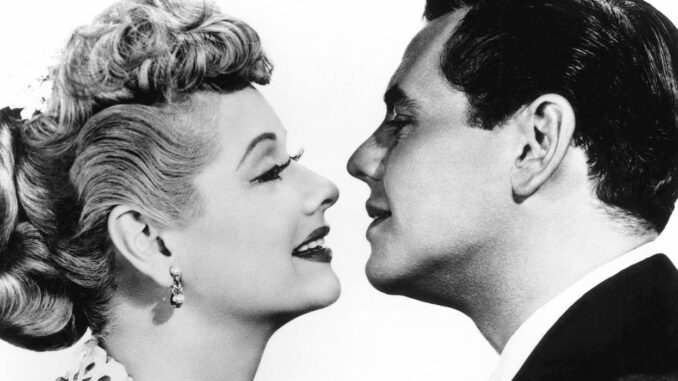
Introduction: A Show That Changed Television Forever
When you think of classic television, I Love Lucy probably comes to mind instantly. This iconic sitcom revolutionized the way TV was produced and consumed, setting a gold standard for comedy. But here’s the kicker—despite its groundbreaking success, the show didn’t end with a proper finale. Surprised? You’re not alone. Let’s dive into why one of the most beloved TV shows of all time never got the send-off it deserved.
The Phenomenon of I Love Lucy
A Cultural Icon
I Love Lucy wasn’t just a show; it was a movement. Premiering in 1951, it became an instant hit, with Lucille Ball and Desi Arnaz captivating millions of viewers weekly. From the chocolate factory fiasco to the grape-stomping scene, the show created moments that remain iconic even today.
Breaking Records and Barriers
The sitcom wasn’t just funny—it was revolutionary. It introduced innovations like the three-camera setup, live audience filming, and syndication. Plus, it tackled topics like interethnic marriage, which was groundbreaking at the time.
Why Didn’t I Love Lucy Have a Finale?
1. The Show’s Abrupt Transition
By 1957, after six successful seasons, I Love Lucy ended its weekly run. But here’s the twist: the show didn’t really “end.” Instead, it transitioned into a series of hour-long specials called The Lucille Ball-Desi Arnaz Show (or The Lucy-Desi Comedy Hour). This move blurred the lines, leaving fans without a traditional series finale.
2. Behind-the-Scenes Tensions
The personal lives of Lucille Ball and Desi Arnaz were no laughing matter. Their marriage was under strain, and by the time the specials wrapped up in 1960, the couple had divorced. The off-screen drama made a formal finale unlikely.
3. A Different Era of Television
In the 1950s, the concept of a grand finale wasn’t common. Shows often ended without fanfare, as TV networks focused more on new programming than on giving audiences closure.
4. The Focus on Continuity
With the introduction of The Lucy-Desi Comedy Hour, the show’s creators likely assumed fans wouldn’t need a definitive ending. After all, Lucy and Ricky were still around—just in a different format.

The Legacy of I Love Lucy
A Show That Lives On
Despite the lack of a proper finale, I Love Lucy has remained timeless. It continues to air in reruns, introducing new generations to Lucy’s antics and Ricky’s charming exasperation.
Unanswered Questions
Without a finale, fans were left to wonder about the fate of the characters. Did Lucy and Ricky’s marriage thrive? Did Fred and Ethel finally retire in peace? The absence of closure has kept the show alive in the imaginations of viewers.
What If I Love Lucy Had a Finale?
1. Imagining the Perfect Ending
Fans often speculate about how the show could have ended. A big farewell party at the Tropicana? Lucy finally landing a successful showbiz gig? The possibilities are endless.
2. Would It Have Changed the Legacy?
A finale might have provided closure, but it could also have limited the show’s enduring appeal. The open-ended nature of I Love Lucy allows it to remain evergreen, with every episode feeling like a fresh start.
How Other Classic Shows Handled Finales
1. Contrasting with The Mary Tyler Moore Show
Unlike I Love Lucy, The Mary Tyler Moore Show delivered a heartfelt finale, wrapping up storylines and giving fans a tearful goodbye.
2. The Rise of the Finale Phenomenon
By the 1970s and 1980s, finales became a staple, with shows like MASH* and Cheers setting the standard for emotional and memorable endings.
Why Closure Matters to Fans
1. The Emotional Connection
Fans invest years in characters, making closure essential for emotional satisfaction. The lack of a finale for I Love Lucy left a void for many.
2. Creating a Narrative Arc
Finales tie up loose ends, giving stories a sense of completion. Without one, I Love Lucy feels like an unfinished masterpiece.
Lessons from I Love Lucy
1. The Power of Ambiguity
While a finale provides closure, ambiguity keeps audiences engaged. The open-ended nature of I Love Lucy invites endless speculation and keeps the show relevant.
2. The Importance of Adaptation
The transition to The Lucy-Desi Comedy Hour highlights the importance of evolving with the times, even if it means breaking tradition.
Conclusion: A Show That Needs No Goodbye
While it’s true that I Love Lucy didn’t have a proper finale, maybe it didn’t need one. The show’s legacy is defined by its timeless humor, groundbreaking innovation, and the unforgettable chemistry of its cast. In a way, every episode feels like a finale—because each one is a masterpiece.
FAQs
1. Why didn’t I Love Lucy have a finale?
The show transitioned into hour-long specials, and the concept of finales wasn’t common in the 1950s.
2. Did the cast plan to end the show differently?
No official plans for a finale were made, as the focus shifted to the new format of The Lucy-Desi Comedy Hour.
3. How did fans react to the lack of a finale?
While some fans wished for closure, most continued to enjoy the characters in the specials.
4. Did Lucille Ball regret not having a finale?
There’s no record of her expressing regret, as she remained focused on future projects.
5. How does the lack of a finale impact the show’s legacy?
It adds to the show’s mystique, keeping it timeless and open to interpretation.